Fostering responsible AI in health care
With the right policies and partnerships, artificial intelligence can lead to higher-quality, more equitable care.
Health care providers use AI to improve patient care
Contributed by Daniel Yang, MD, Vice President, Artificial Intelligence and Emerging Technologies
Across the U.S., many organizations are realizing the transformative potential of artificial intelligence.
In health care, AI presents opportunities to improve patient outcomes and reduce health disparities. It can support care teams and enable more personalized health care experiences.
But health care leaders must understand and address risks to ensure AI is used safely and equitably. These risks include flawed algorithms, unsatisfying patient experiences, and privacy concerns.
At Kaiser Permanente, we’re taking a thoughtful approach to AI. AI tools alone don't save lives or improve the health of our members, they enable our physicians and care teams to provide high-quality, equitable care.
How Kaiser Permanente uses AI
The health care industry generates almost 30% of all data in the world.
Artificial intelligence enables computers to learn and solve problems using a variety of data sources, including medical images, audio, and text. The insights generated from AI can support our physicians and employees in enhancing the care of our patients.
For example, a Kaiser Permanente program called Advance Alert Monitor uses AI and helps prevent emergencies in the hospital before they happen. Every hour, the program automatically analyzes hospital patients’ electronic health data. If the program identifies a patient at risk of serious decline, it sends an alert to a specialized virtual quality nursing team. The nursing team reviews the data to determine what level of on-site intervention is needed.
This program is currently in use at 21 Kaiser Permanente hospitals across Northern California. A rigorous evaluation found that the program saves an estimated 500 lives per year.
The path to responsible AI
At Kaiser Permanente, AI tools must drive our core mission of delivering high-quality and affordable care for our members. This means that AI technologies must demonstrate a "return on health," such as improved patient outcomes and experiences.
We evaluate AI tools for safety, effectiveness, accuracy, and equity. Kaiser Permanente is fortunate to have one of the most comprehensive datasets in the country, thanks to our diverse membership base and powerful electronic health record system. We can use this anonymized data to develop and test our AI tools before we ever deploy them for our patients, care providers, and communities.
We are careful to make sure that the AI tools we use support the delivery of equitable, evidence-based care for our members and communities. We do this by testing and validating the accuracy of AI tools across our diverse populations. We are also working to develop and deploy AI tools that can help us identify and proactively address the health and social needs of our members. This can lead to more equitable health outcomes.
Finally, once a new AI tool is implemented, we continuously monitor its outcomes to ensure it is working as intended. We stay vigilant; AI technology is rapidly advancing, and its applications are constantly changing.
Policymakers can help set guardrails
While Kaiser Permanente and other leading health care organizations work to advance responsible AI, policymakers have a role to play too. We encourage action in the following areas:
- National AI oversight framework — An oversight framework should provide an overarching structure for guidelines, standards, and tools. It should be flexible and adaptable to keep pace with rapidly evolving technology. New breakthroughs in AI are occurring monthly.
- Standards governing AI in health care — Policymakers should work with health care leaders to develop national, industry-specific standards to govern the use, development, and ethics of AI in health care. By working closely with health care leaders, policymakers can establish standards that are effective, useful, timely, and not overly prescriptive. This is important because standards that are too rigid can stifle innovation, which would limit the ability of patients and providers to experience the many benefits AI tools could help deliver.
Guardrails: Progress so far
The National Academy of Medicine convened a steering committee to establish a Health Care AI Code of Conduct that draws from health care and technology experts, including Kaiser Permanente. This is a promising start to developing an oversight framework.
In addition, Kaiser Permanente appreciates the opportunity to be an inaugural member of the U.S. AI Safety Institute Consortium. The consortium is a multisector work group setting safety standards for the development and use of AI, with a commitment to protecting innovation.
Considerations for policymakers
As policymakers develop AI standards, we urge them to keep a few important points top of mind.
- Lack of coordination creates confusion. Government bodies should coordinate at the federal and state levels to ensure AI standards are consistent and not duplicative or conflicting.
- Standards need to be adaptable. As health care organizations continue to explore new ways to improve patient care, it is important for them to work with regulators and policymakers to make sure standards can be adapted by organizations of all sizes and levels of sophistication and infrastructure. This will allow all patients to benefit from AI technologies while also being protected from potential harm.
AI has enormous potential to help make our nation’s health care system more robust, accessible, efficient, and equitable. At Kaiser Permanente, we’re excited about AI’s future, and are eager to work with policymakers and other health care leaders to ensure all patients can benefit.
-
Social Share
- Share Fostering Responsible AI in Health Care on Pinterest
- Share Fostering Responsible AI in Health Care on LinkedIn
- Share Fostering Responsible AI in Health Care on Twitter
- Share Fostering Responsible AI in Health Care on Facebook
- Print Fostering Responsible AI in Health Care
- Email Fostering Responsible AI in Health Care

December 15, 2025
‘Free’ drug samples aren’t really free
Pharmaceutical marketing hurts patient care and drives up costs. At Kaiser …

December 9, 2025
Buprenorphine saves lives. Why can’t more patients get it?
Policy changes are crucial for better opioid addiction treatment.

November 19, 2025
Will AI rules leave small hospitals behind?
Policymakers can design regulations that protect patients and work for …

October 21, 2025
Health coverage is key to early breast cancer detection
Timely screenings save lives and lower costs, but millions of people miss …

September 5, 2025
Congress must act to keep health insurance affordable
Enhanced premium tax credits help millions of people afford health insurance. …
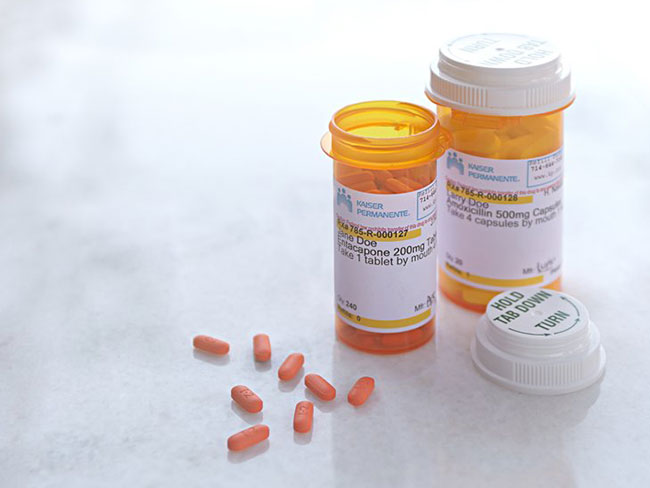
August 5, 2025
Pharmaceutical marketing hurts patient care
At Kaiser Permanente, our doctors and pharmacists work together to ensure …

July 22, 2025
Mental health care without borders
When clinicians can practice across state lines, more people can get the …

June 17, 2025
We must grow the health care workforce
At Kaiser Permanente, we educate future clinicians and offer programs that …
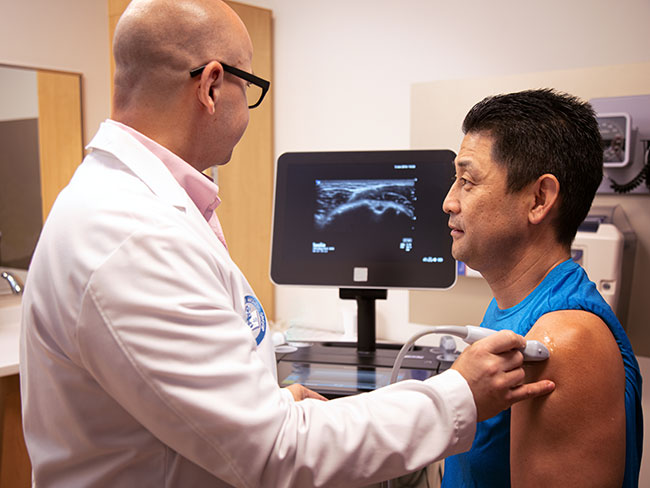
May 21, 2025
Trust unlocks AI’s potential in health care
Artificial intelligence can improve health care by reducing administrative …

April 21, 2025
Congress must protect Medicaid and insurance tax credits
Medicaid and tax credits for acquiring coverage are essential for patients, …

March 25, 2025
AI in health care: 7 principles of responsible use
These guidelines ensure we use artificial intelligence tools that are safe …

March 24, 2025
Our nation's health depends on coverage
Health insurance is key to a strong country — it improves health and boosts …

February 20, 2025
Our nation’s health suffers if Congress cuts Medicaid
Reducing Medicaid funding will lead to worse health outcomes, overburden …

January 15, 2025
Why the U.S. needs more community health workers
With the right strategies and public policies, we can strengthen our nation’s …

December 10, 2024
Accelerating growth in the mental health care workforce
Actions policymakers can take to grow and diversify the mental health care …

November 11, 2024
Medicare telehealth flexibilities should be here to stay
We urge Congress to extend policies that have improved access to care and …

September 19, 2024
First look at new Lakewood facilities
New medical offices will enhance the health care experience for members …

September 16, 2024
Voting affects the health of our communities
In honor of National Voter Registration Day, we encourage everyone who …

July 22, 2024
Our nation’s health depends on well-funded research
Advanced medical science improves patient outcomes. We urge lawmakers to …

July 2, 2024
Reducing cultural barriers to food security
To reduce barriers, Food Bank of the Rockies’ Culturally Responsive Food …
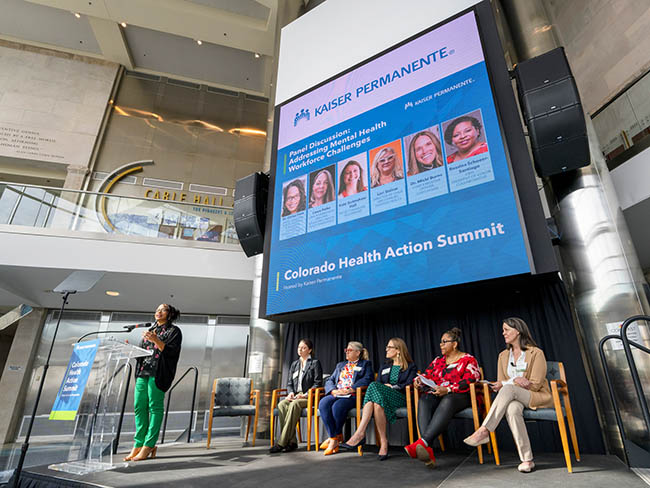
June 28, 2024
Health Action Summit highlights mental health opportunities
The Kaiser Permanente Colorado Health Action Summit gathered nonprofits, …

June 3, 2024
A call to ‘Connect’ for cancer prevention research
Participate in a study to help uncover the causes of cancer and how to …

May 7, 2024
Can the badly broken prescription drug market be fixed?
Prescription drugs are unaffordable for millions of people. With the right …

April 12, 2024
It’s time to address America’s Black maternal health crisis
Health care leaders and policymakers should each play their part to help …

February 12, 2024
Proposition 1 would bolster mental health care in California
Kaiser Permanente supports the ballot measure to expand and improve mental …

January 31, 2024
Prioritizing policies for health and well-being in Colorado
CityHealth’s 2023 Annual Policy Assessment awards cities for their policies …

January 22, 2024
Solutions for strengthening the mental health care workforce
Better public policies can help address the challenges. We encourage policymakers …

December 20, 2023
Funding solutions to end gun violence
Researchers and organizations are exploring inventive ways to reduce gun …
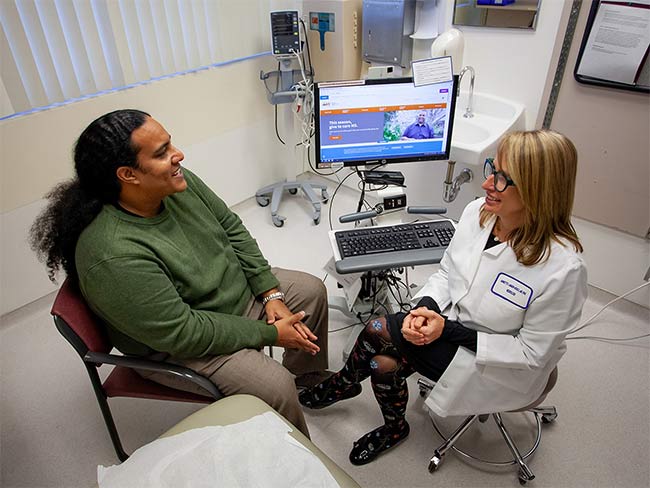
December 20, 2023
Research transforms care for people with multiple sclerosis
Our researchers are leading the way to more effective, affordable, and …
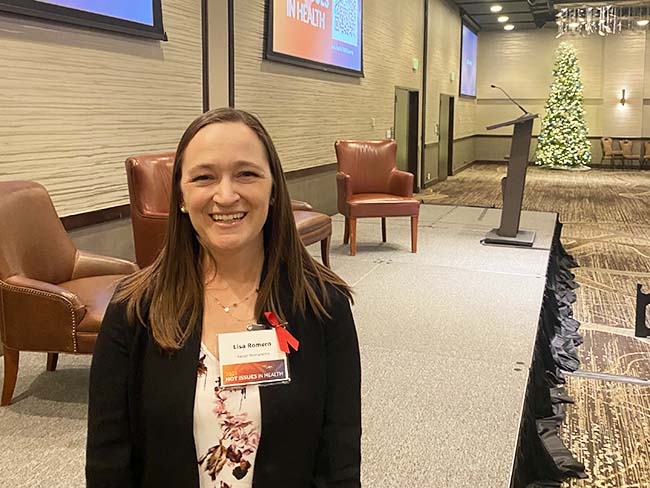
December 15, 2023
Climate change is already affecting our health
The health care industry is responsible for 8% to 10% of harmful emissions …
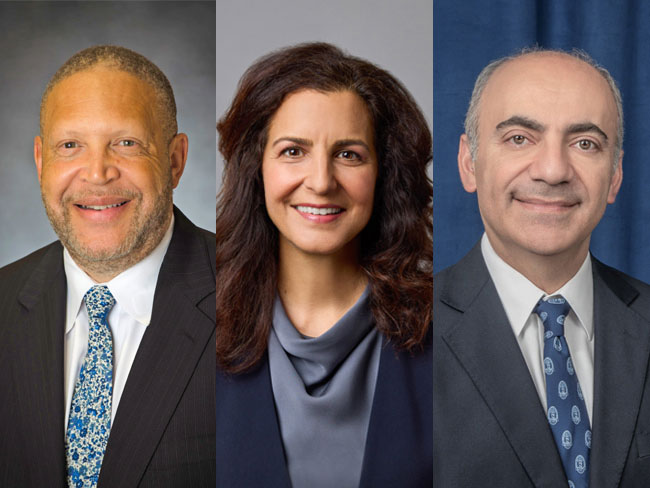
December 6, 2023
Leaders named among health care’s most influential
Greg A. Adams; Maria Ansari, MD, FACC; and Ramin Davidoff, MD, have been …

November 13, 2023
Congress must act to address drug shortages
Kaiser Permanente is working to address drug shortages and support policies …

October 23, 2023
The future of health care is digital
Nari Gopala, Kaiser Permanente’s chief digital officer, answers 3 questions …

October 4, 2023
An easier way to manage multiple prescriptions
If you have an ongoing health condition, you know it can be tricky to keep …

September 27, 2023
10 school districts receive next round of RISE grants
The Thriving Schools program helps educators and students in Colorado integrate …

September 13, 2023
Transforming the medical record
Kaiser Permanente’s adoption of disruptive technology in the 1970s sparked …

September 6, 2023
Advancing mental health crisis care through public policy
Organizations that provide public mental health crisis services must work …

July 11, 2023
Our prescription for safe, effective, more affordable drugs
Our approaches ensure effectiveness and safety, and drive cost savings. …

June 1, 2023
Policy recommendations from a mental health therapist in training
Changing my career and becoming a therapist revealed ways our country can …

April 25, 2023
Hannah Peters, MD, provides essential care to ‘Rosies’
When thousands of women industrial workers, often called “Rosies,” joined …

April 11, 2023
Collaboration is key to keeping people insured
With the COVID-19 public health emergency ending, states, community organizations, …

January 17, 2023
Lawmakers must act to boost telehealth and digital equity
Making key pandemic-era telehealth policies permanent and ensuring more …

November 8, 2022
Protecting access to medical care for legal immigrants
A statement of support from Kaiser Permanente chair and CEO Greg A. Adams …

October 21, 2022
Kaiser Permanente therapists ratify new contract
New 4-year agreement with NUHW will enable greater collaboration aimed …

October 6, 2022
We’re a Fast Company Innovation by Design winner
Kaiser Permanente is the first health care organization to win Design Company …
October 1, 2022
Innovation and research
Learn about our rich legacy of scientific research that spurred revolutionary …

August 16, 2022
Our support for the Inflation Reduction Act
A statement from chair and chief executive Greg A. Adams on the importance …

May 2, 2022
How to transform mental health care: Follow the research
We applaud President Biden and Congress as they begin to set policies that …

March 22, 2022
NUHW psych-social employees ratify agreement
The agreement between Kaiser Permanente and the NUHW in Southern California …

March 22, 2022
Our commitment to equity and our LGBTQIA+ communities
A statement from chair and chief executive officer Greg A. Adams.
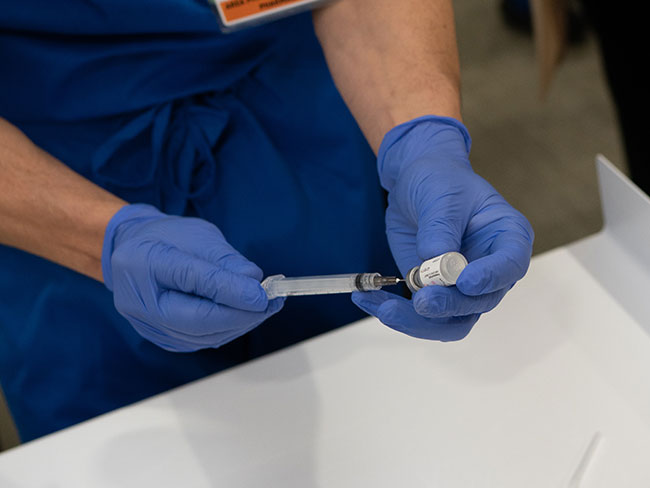
October 12, 2021
Beyond advocacy: Requiring vaccination to stop COVID-19
Kaiser Permanente and other leading companies are mandating COVID-19 shots …
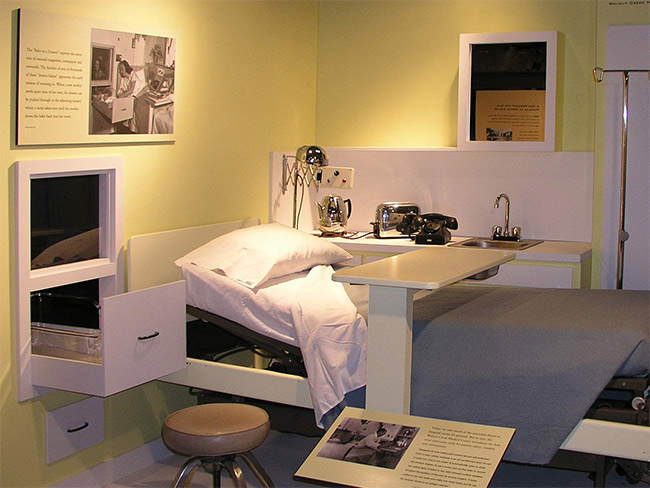
September 10, 2021
‘Baby in the drawer’ helped turn the tide for breastfeeding
This innovation in rooming-in allowed newborns to stay close to mothers …

July 7, 2021
Achieving health equity
Equal medical care is not enough to end disparities in health outcomes.

April 27, 2021
Health data privacy
Protecting our members’ personal health information

April 23, 2021
Medicaid
Delivering high-quality Medicaid coverage and services

September 28, 2020
A legacy of disruptive innovation
Proceeds from a new book detailing the history of the Kaiser Foundation …

August 26, 2020
Kaiser Permanente’s pioneering nurse-midwives
The 1970s nurse-midwife movement transformed delivery practices.

April 27, 2020
Health care reform
Affordable, accessible health care and coverage

March 4, 2020
Our impact
How Kaiser Permanente strengthens communities and advances public policies …

March 1, 2020
Prescription drug pricing
Bringing down the high cost of medication
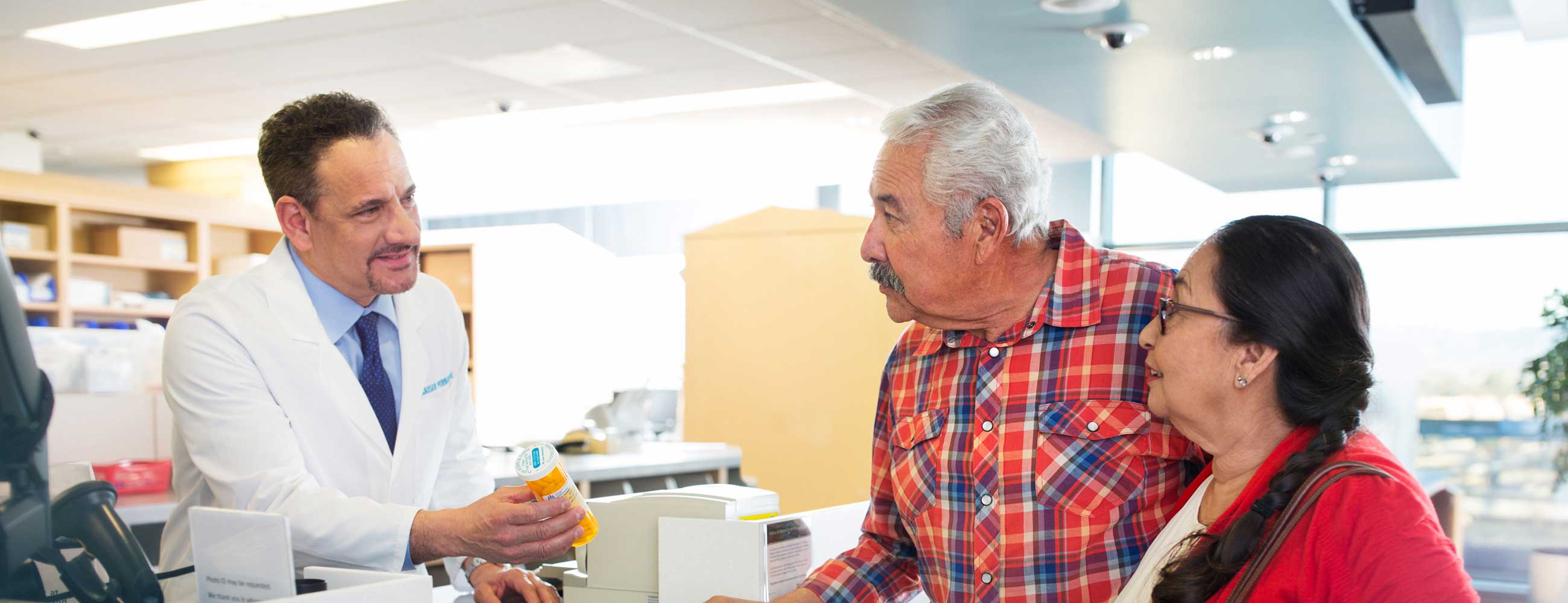
February 29, 2020
California

February 1, 2020
Georgia

February 1, 2020
Washington

February 1, 2020
Hawaii

February 1, 2020
Colorado
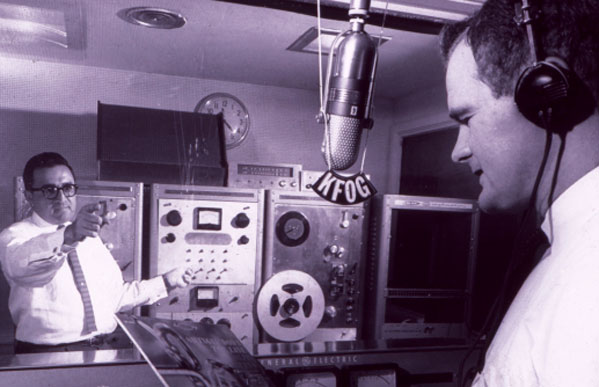
August 2, 2019
Thriving with 1960s-launched KFOG radio
Kaiser Broadcasting radio connected listeners, while TV stations brought …

June 5, 2019
Breaking LGBT barriers for Kaiser Permanente employees
“We managed to ultimately break through that barrier.” — Kaiser Permanente …

February 5, 2019
Mobile clinics: 'Health on wheels'
Kaiser Permanente mobile health vehicles brought care to people, closing …

April 30, 2018
Nursing pioneers leads to a legacy of leadership
Kaiser Foundation School of Nursing students learned a new philosophy emphasizing …

April 19, 2018
Wasting nothing: Recycling then and now
Environmentalism was a common practice at the Kaiser shipyards long before …
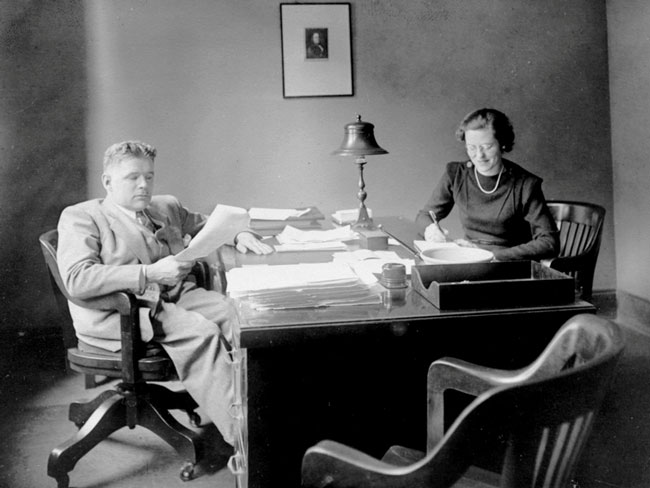
April 12, 2018
Harold Hatch, health insurance visionary
The founding of Kaiser Permanente's concept of prepaid health care in the …
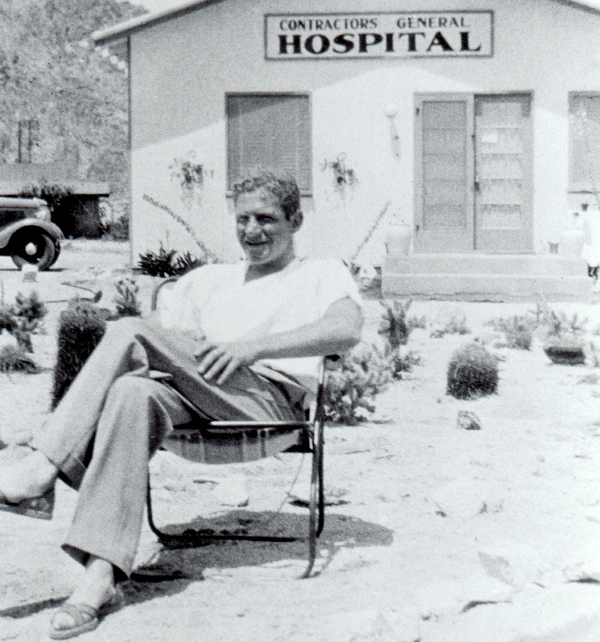
March 26, 2018
5 physicians who made a difference
Meet 5 outstanding doctors who advanced the practice of medical care with …
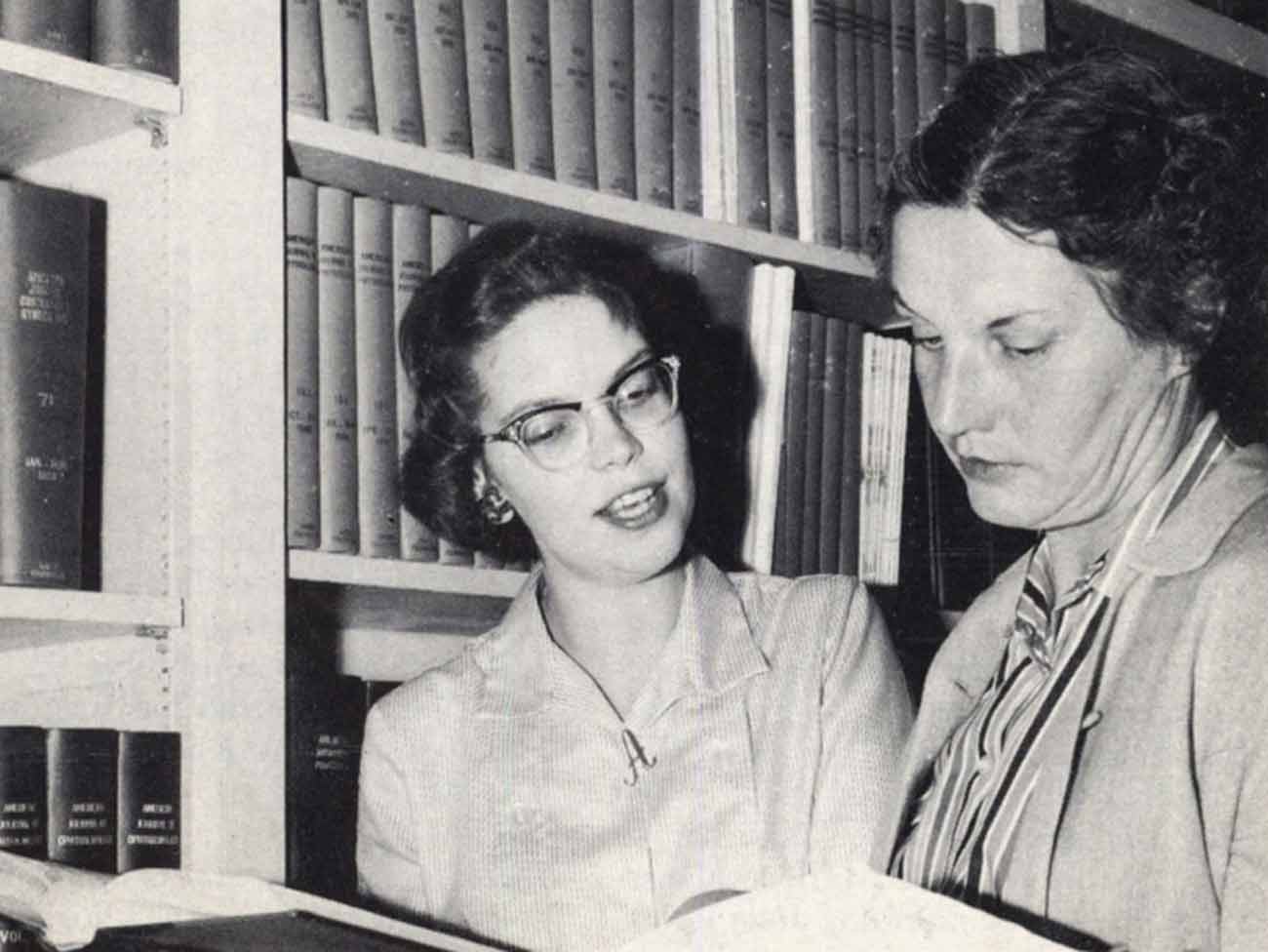
December 19, 2017
From boats to books: A history of Kaiser Permanente’s medical libraries
Kaiser Permanente librarians are vital in helping clinicians remain updated …
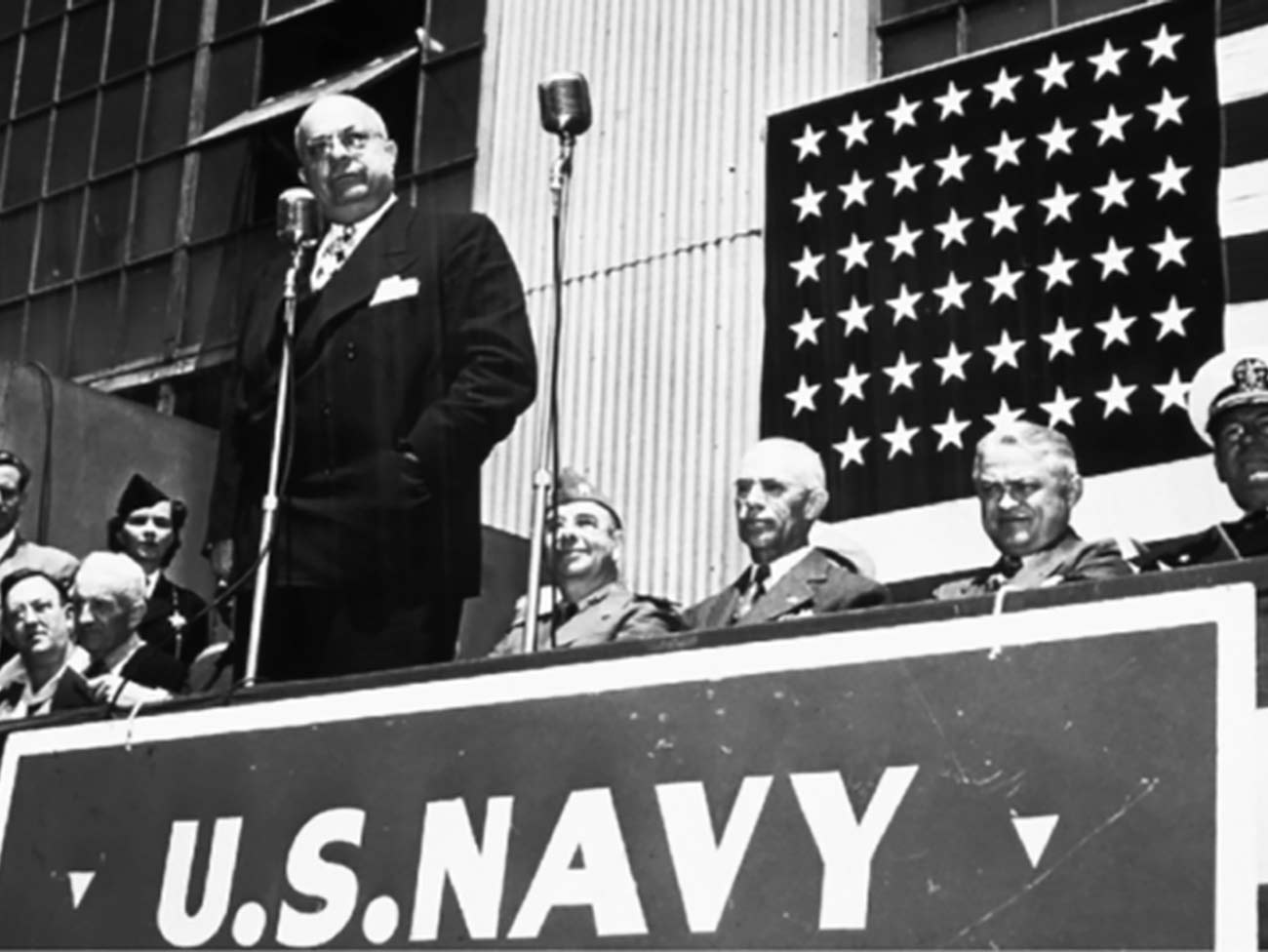
November 7, 2017
Patriot in pinstripes: Honoring veterans, home front, and peace
Henry J. Kaiser's commitment to the diverse workforce on the home front …

October 12, 2017
An experiment named Fabiola
Health care takes root in Oakland, California.

August 15, 2017
Sidney R. Garfield, MD, on medical care as a right
Hear Kaiser Permanente’s physician co-founder talk about what he learned …

August 10, 2017
‘Good medicine brought within reach of all'
Paul de Kruif, microbiologist and writer, provides early accounts of Kaiser …

July 14, 2017
Kaiser’s role in building an accessible transit system
Harold Willson, an employee, and an advocate for accessible transportation, …
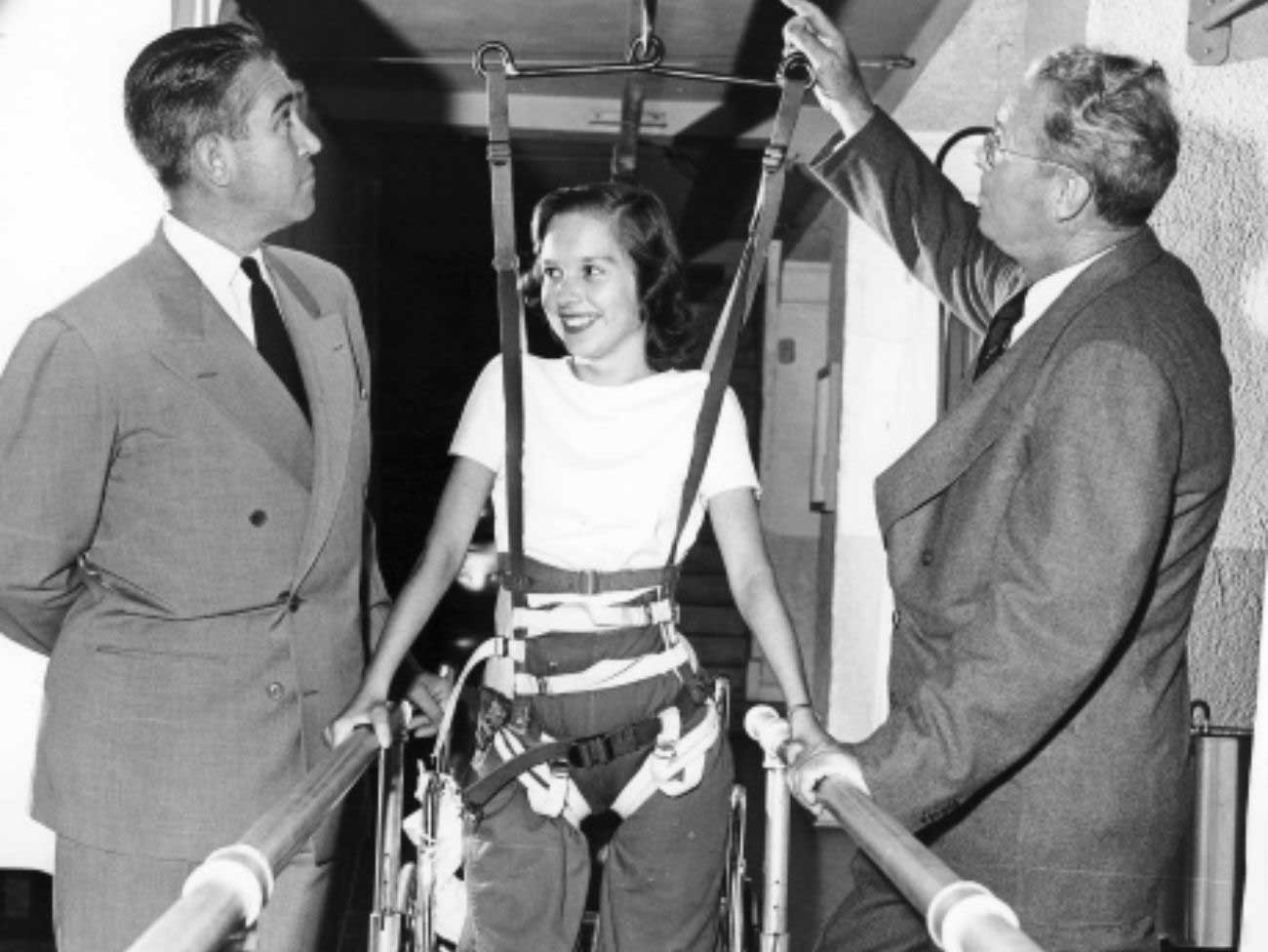
July 7, 2017
Mending bodies and minds — Kabat-Kaiser Vallejo
The expanded new location provided care to a greater population of members …

June 23, 2017
No getting round it: An innovative approach to building design
Kaiser Permanente incorporated innovative circular architectural designs …
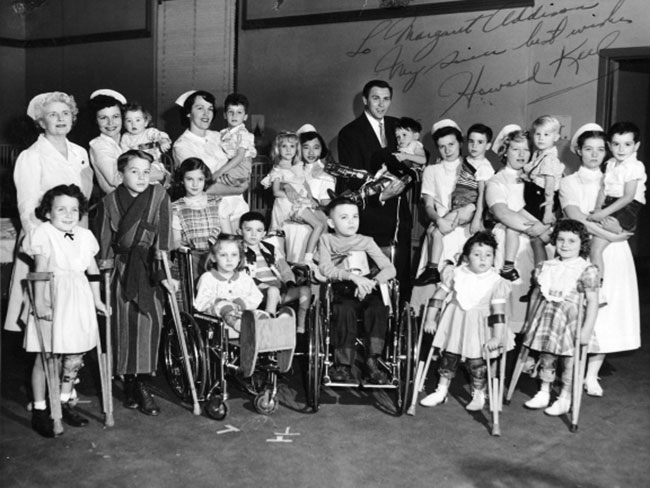
June 14, 2017
Kabat-Kaiser: Improving quality of life through rehabilitation
When polio epidemics erupted, pioneering treatments by Dr. Herman Kabat …
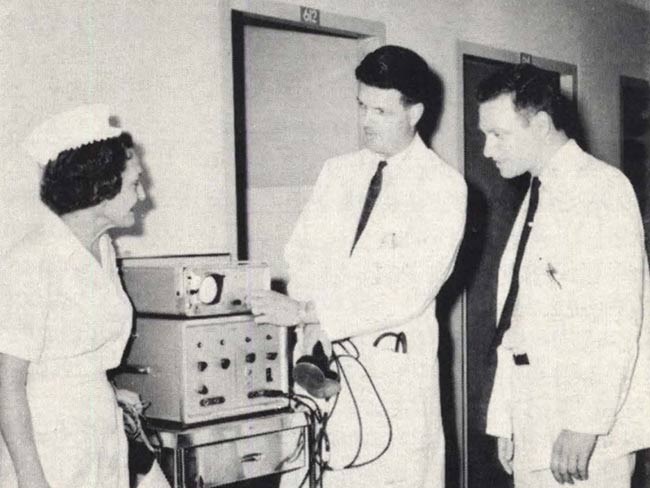
June 9, 2017
Edmund (Ted) Van Brunt, pioneer of electronic health records, dies at age …
Throughout his career, Dr. Van Brunt applied computers and databases in …

May 4, 2017
How a Kaiser Permanente nurse transformed health education
Kaiser Permanente's Health Education Research Center and Health Education …
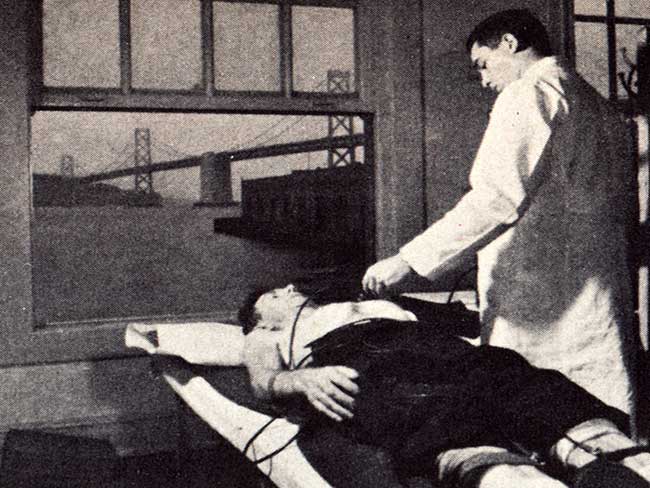
March 1, 2017
Screening for better health: Medical care as a right
When industrial workers joined the health plan, an integrated battery of …
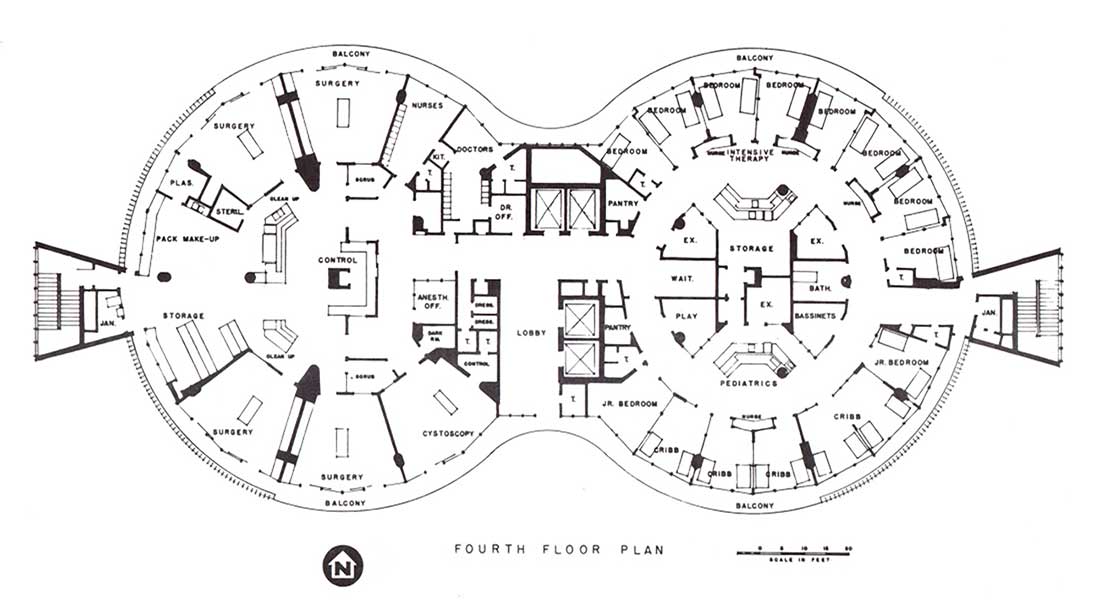
February 17, 2017
Experiments in radial hospital design
The 1960s represented a bold step in medical office architecture around …

October 12, 2016
Kaiser’s geodesic dome clinic
There are hospital rounds, and there are round hospitals.

April 20, 2016
Henry J. Kaiser’s environmental stewardship
Since the 1940s, Kaiser Industries and Kaiser Permanente have a long history …
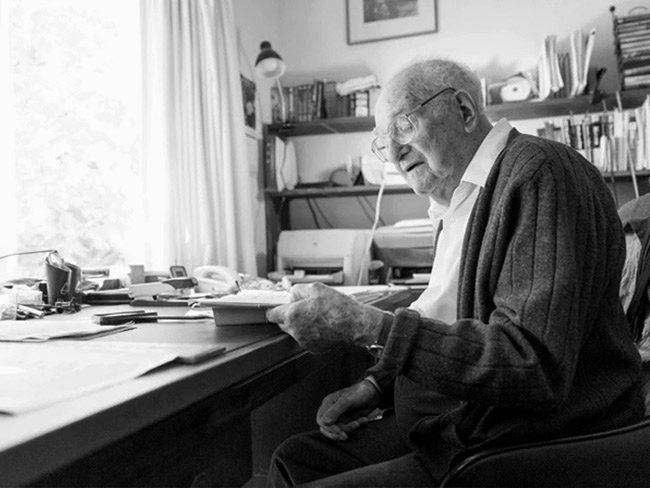
November 13, 2015
Dr. Morris Collen’s last book on medical informatics
The last published work of Morris F. Collen, MD, one of Kaiser Permanente’s …
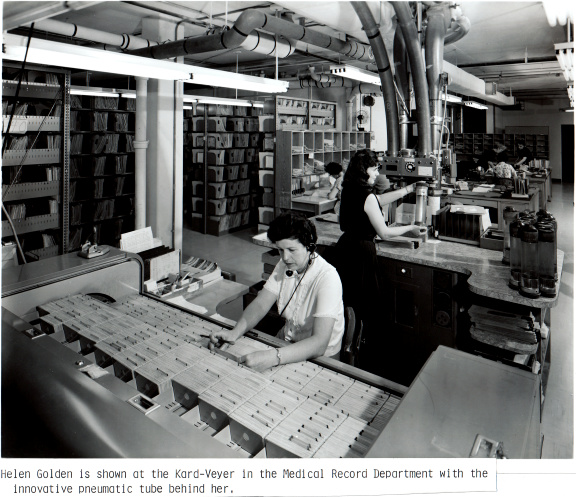
October 29, 2015
From paper to pixels — the new paradigm of electronic medical records
Transitioning to electronic health records introduced new approaches, skills, …

September 23, 2015
Kaiser Permanente and NASA — taking telemedicine out of this world
Kaiser Permanente International designs, develop, and test a remote health …
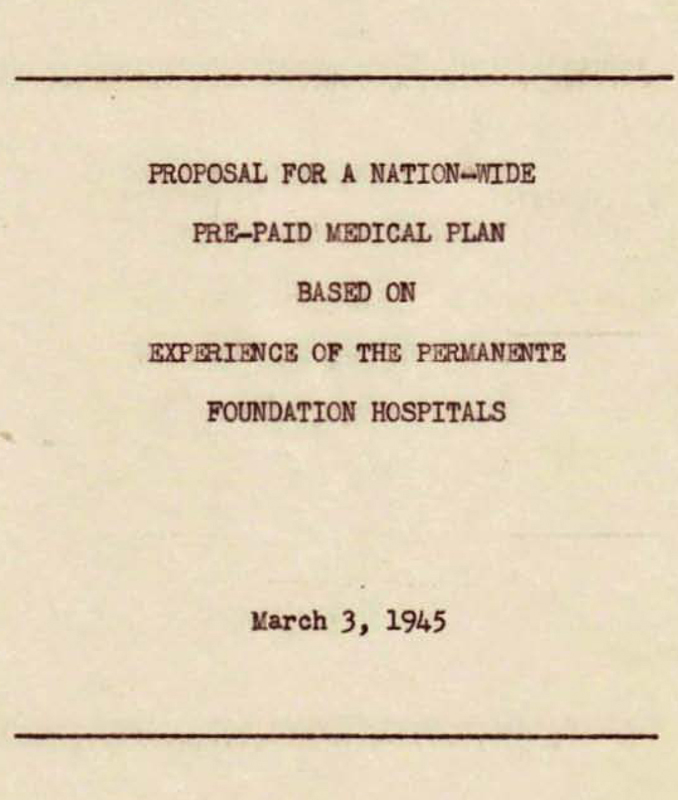
July 22, 2015
Kaiser Permanente as a national model for care
Kaiser Permanente proposed a revolutionary national health care model after …

December 11, 2014
Henry J. Kaiser, geodesic dome pioneer

October 8, 2014
Breast cancer isn’t just a woman’s issue
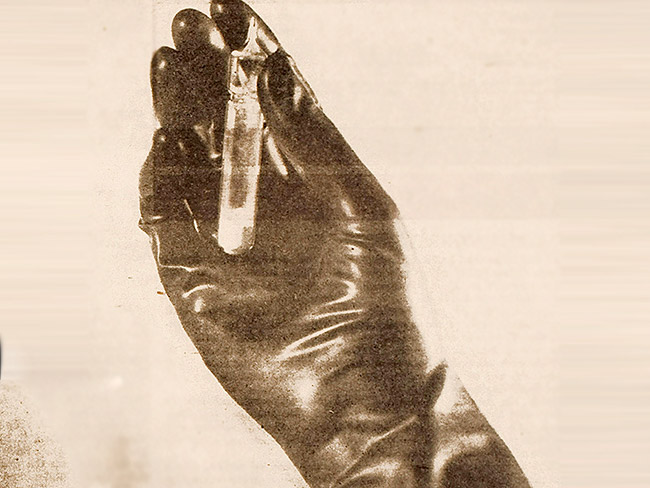
July 23, 2014
Kaiser shipyards pioneered use of wonder drug penicillin
Though supplies for civilians were limited, Dr. Morris Collen’s wartime …

June 24, 2014
Kaiser Permanente's first hospital changes and grows
A collection of vintage photos that chronicle the evolution of Oakland …

September 23, 2013
Kaiser Permanente pioneered solar power in health facilities in 1980
Santa Clara Medical Center hosted a solar panel project in 1979 to demonstrate …

September 19, 2013
Kaiser’s postwar suburbs designed for pedestrian safety and fitness
Model neighborhoods close to jobs and laid out with meandering lanes and …
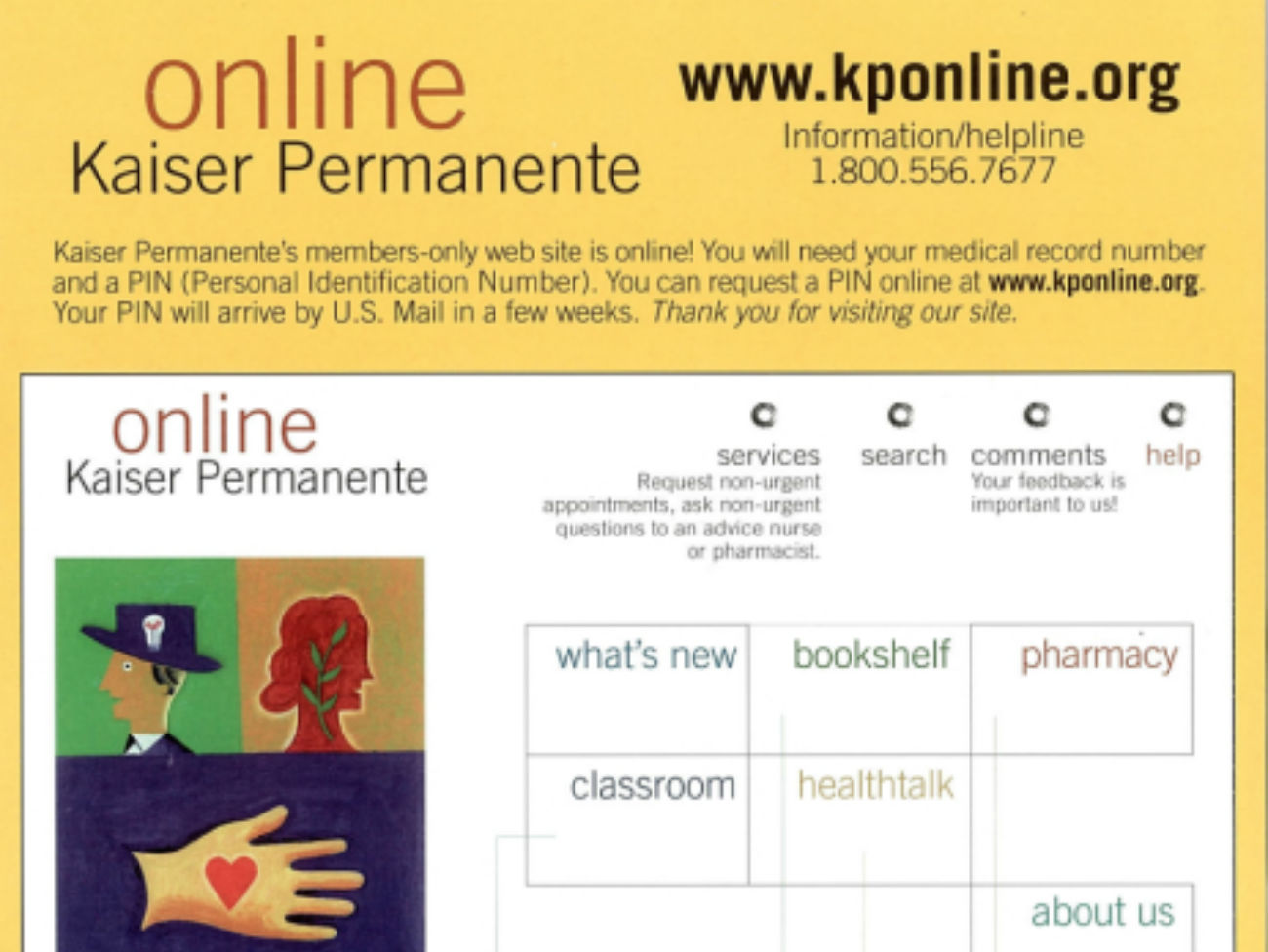
July 9, 2013
Kaiser Permanente Web presence rooted in past
The first Kaiser Permanente website launched in 1996, creating a new way …

March 6, 2013
Decades of health records fuel Kaiser Permanente research
Over 50 years of early Kaiser Permanente electronic health records since …
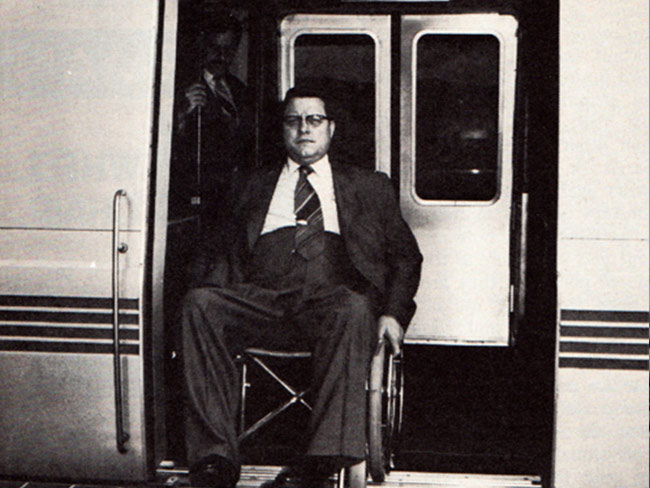
October 23, 2012
Disabled Kaiser Permanente employee changed course of public transportation
In the 1960s, Harold Willson successfully advocated for the historically …